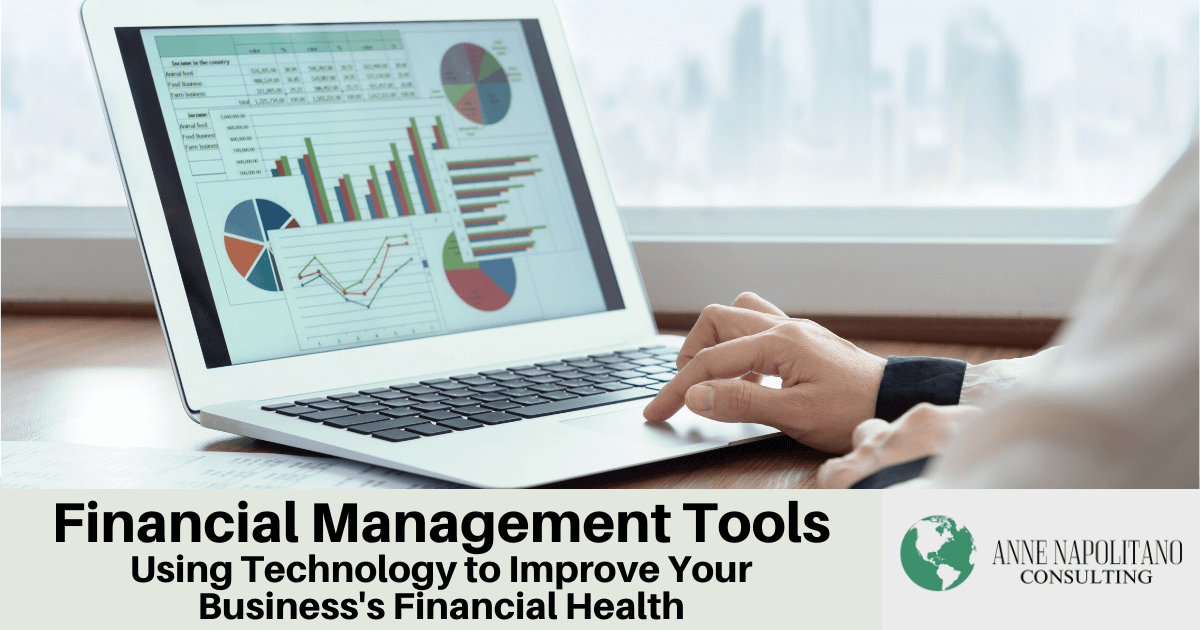
Using financial management tools is essential in today’s fast-paced business environment. For businesses aiming to stay competitive and financially healthy, leveraging technology for efficient financial management has become a necessity. These technologies offer unprecedented benefits, from streamlining operations to providing real-time financial insights. This blog post explores how financial management tools are revolutionizing the way businesses approach their financial processes, ultimately leading to improved financial health and decision-making.
Digital Accounting Software
One of the cornerstones of modern financial management is digital accounting software. These platforms have transformed traditional accounting practices, offering businesses a comprehensive suite of features designed to manage their finances more effectively. The advantages of using digital accounting software include real-time financial tracking, streamlined expense management, and enhanced reporting capabilities. By automating routine tasks, businesses can focus on strategic financial planning and analysis, reducing the risk of errors and ensuring accuracy in their financial records.
Features to Look For
- Real-Time Financial Tracking: Instant access to financial data allows businesses to monitor their financial status continuously, making it easier to identify trends and address issues promptly.
- Expense Management: Efficiently track and categorize expenses, enabling better budget control and cost reduction strategies.
- Enhanced Reporting: Generate detailed financial reports with ease, providing valuable insights into business performance and facilitating informed decision-making.
- Cloud-Based: Ensure accessibility from anywhere, at any time, allowing for flexible and remote financial management. This feature is crucial for businesses in today’s mobile and interconnected world.
We recommend QuickBooks Online or Xero for your accounting software. Both offer a vast number of features to automate your accounting processes and integrate well with other financial management software.
Financial Dashboard Implementation
Implementing a financial dashboard is another strategic move towards leveraging financial management tools to improve your business’s financial health. Dashboards provide a visual representation of key financial metrics, allowing business owners and managers to quickly grasp their financial situation at a glance. The benefits of financial dashboards include improved transparency, the ability to monitor financial goals, and enhanced decision-making efficiency.
Choosing and Implementing a Dashboard
When selecting a financial dashboard, consider your business’s specific needs and the key metrics you wish to track. Implementation should focus on integrating with existing financial management tools and ensuring that data is accurately represented. Training team members to utilize the dashboard effectively is also crucial for maximizing its benefits.
Automation in Financial Processes
Automation plays a pivotal role in streamlining financial processes. By using financial management tools to automate tasks such as invoicing, payroll, and reconciliation, businesses can significantly reduce the time and effort required for financial management. Automation not only improves efficiency but also minimizes the risk of human error, ensuring more accurate financial records.
Areas Benefiting from Automation
- Invoicing and Payments: Automate the generation and sending of invoices, as well as the tracking of payments. We recommend using Bill.com.
- Payroll Processing: Simplify the payroll process, ensuring employees are paid accurately and on time. We recommend trying Gusto for seamless payroll processing.
- Account Reconciliation: Automatically reconcile bank statements with bookkeeping records, saving time and reducing discrepancies. QuickBooks Online and Xero both have features to streamline your reconciliation processes.
Emerging Technologies for Financial Health
The future of financial health monitoring lies in the adoption of emerging technologies such as artificial intelligence (AI) and machine learning (ML). These technologies offer the potential to transform financial management further, providing predictive insights and enhancing decision-making capabilities.
AI and ML in Financial Management
- Predictive Analytics: Use AI and ML to analyze financial data and predict future trends, helping businesses to anticipate and plan for potential financial challenges.
- Fraud Detection: Enhance the security of financial transactions by identifying and preventing fraudulent activity through sophisticated pattern recognition.
- Personalized Financial Advice: Offer tailored financial advice based on the analysis of vast amounts of data, supporting more strategic financial decisions.
Partners in Your Success
The transformative impact of technology on financial health monitoring is undeniable. Financial management tools, from digital accounting software and financial dashboards to automation and emerging technologies like AI and ML, are empowering businesses to manage their finances more effectively and make informed decisions. We recommend utilizing these technologies as a part of a regular financial health check. As the business world continues to move forward, the integration of these technologies into financial management practices is not just an option but a strategic imperative for businesses aiming to thrive in the digital age.
Anne Napolitano Consulting is a virtual, tech-forward, full-service accounting and consulting firm that offers solutions tailored to fit the unique needs of your business. If you’re looking to enhance your business’s financial management practices, schedule your free consultation. We want to be partners in your success.
